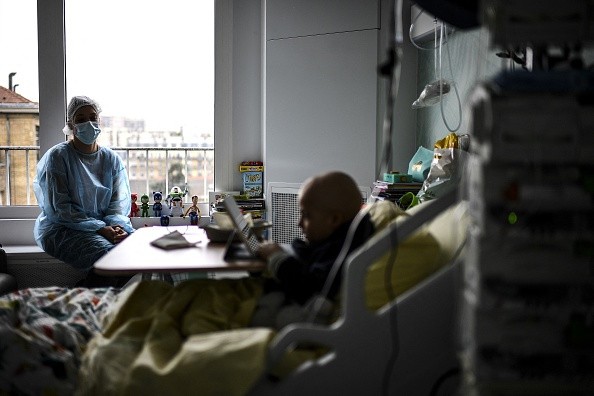A group of researchers conducted phase one of clinical trials between 2019 to 2022 for an anti-cancer drug on patients living with acute myeloid leukemia (AML). Revumenib sheds light on AML patients as the drug potentially treats their cancer.

Treating AML with Revumenib
Despite chemotherapy's existence, there is still no guarantee for a cancer patient to be cured of their disease through this process. However, a group of researchers conducted two studies as they develop an anti-cancer drug, specifically made for patients with acute myeloid leukemia.
According to a report from Interesting Engineering, one study highlighted Revumenib's effectiveness in treating AML while the other study focused on the resistance of leukemia cells developed against the drug, and proving the potential of treating AML patients.
AML can be obtained through mutations in two genes called KMT2Ar and NPM1, and a protein named menin that causes the development of these mutations. Menin, which is encoded by the MEN1 gene, is highly responsible for preventing uncontrolled cell division and development in the human body.
Menin has been found to be roaming around the mutations, leading to cell multiplication in patients with AML uncontrollably. But fortunately, Revumenib is discovered which is a drug that has the power to hinder menin to patients.
Dana-Farber Cancer Institute President and author of the study Scott Armstrong stated, "Revuminib blocks a critical protein menin that has been previously shown to be necessary for the mutant proteins to keep AML cells alive and dividing."
Conducting the Studies
Along with Armstrong, Cision reported that the researchers tested Revumenib on 60 patients during the first study and they found that 53% of patients showed some AML remission, while 18 of them experienced complete remission.
Moreover, 14 of them experienced a drop in their cancer cell count leading to undetectable levels just after two months of receiving the treatment.
Meanwhile, the researchers found during the second study new mutations in the MEN1 genes in some participated patients after taking Revumenib. This means that the mutations were aimed at the resistance of cancer cells developed against the drug.
Armstrong added that the MEN1 gene developed a mutation that lowers the binding power of Revumenib. "This shows that leukemia is highly dependent on Menin function and validates this therapeutic approach," he noted.
This also shows that the trial proves that it can produce remissions in a high percentage of patients. The researchers analyzed bone marrow samples from some of the patients involved in the study, who became resistant to Revumenib.
Science Daily stated that the anti-cancer drug will act as a kind of serum that brings the truth to leukemia cells as it places the cells under pressure.
This will cause the cells to disclose one of their strategies for survival. Armstrong stated that they are on track on hitting a target the cell truly relies on as it has gone through so much trouble to mutate MEN1 in order to survive.
Related Article : Researchers Develop New Drug Delivery Approach for Brain Tumor Treatment Among Children

ⓒ 2026 TECHTIMES.com All rights reserved. Do not reproduce without permission.




